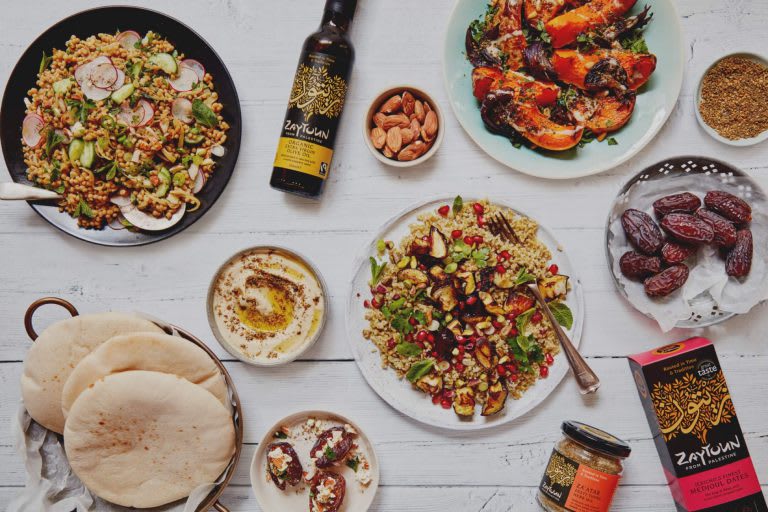
Za’atar is a beloved staple of Palestinian kitchens and culture.
The word za’atar refers both to the herb itself – Majorana syriaca, an indigenous variety native to Palestine – and to the zesty blend made by combining the dried herb with sumac, toasted sesame seeds, a touch of salt, and a dash of olive oil. Though part of the same plant family as thyme, oregano, and marjoram, za’atar has its own distinctive flavour and a cherished place in Palestine’s culinary tradition.
Our za’atar comes from the Burqin Women’s Cooperative, who have partnered with our supplier Canaan for over nine years (and below in the photo you can see one of its members Um Shehadeh who joined us here for Fairtrade Fortnight in 2010). It’s cultivated across several villages in the Jenin and Nablus areas, and much of the za’atar we source is grown on smallholdings and in home gardens tended by women. These small plots require careful watering and attention throughout the year, and the work of growing and harvesting is often interwoven with family and community life.
Traditionally, za’atar was foraged from the wild – a practice so deeply rooted in Palestinian life that the herb is still often called wild za’atar. But under Israeli occupation, foraging it has been made illegal, with fines and restrictions imposed on those who attempt to pick it in the wild. In response, many communities began cultivating za’atar instead – ensuring the continuity of this beloved herb while quietly resisting the erasure of cultural traditions.
The leaves are hand-harvested twice a year – in March and August – early in the morning when their aromatic oils are at their peak. They’re then sun-dried on rooftops and carefully stripped from their stems by hand, preserving their full fragrance and flavour.
It’s this patient, hands-on process that gives our za’atar its rich, unmistakable taste – a taste that instantly evokes Palestine.
Find out more about za’atar and all the ways it can bring its quintessential Palestinian flavour to your favourite dishes – adding a bold, earthy lift to roasted vegetables, labneh, bread, eggs, and so much more. It’s symbolic, steeped in heritage, and a celebration of the women who bring it to life.





